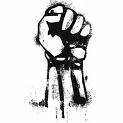
By Jim Gibney (for Irish News)
When I see popular uprisings like those that have been happening across the Middle East over the last month I am brought back in time to my teenage years and the streets of Belfast circa 1968.
To the Short Strand, in fact, where I cut my teeth as a stone thrower at the RUC, ‘B’ Specials and loyalists accompanying Orange Order parades as they made incursions into the Short Strand to burn it down.
To a time when on a black and white television screen I observed other teenagers involved in dangerous riots in Derry and on Belfast’s Falls Road.
We had no fear as 14-year-olds. We did not know what fear was and this was before I had even heard of the IRA or before it began to reorganise.
To this day I do not know why we did not have the fear that our parents had for the RUC and the ‘S’ Specials. It just was not there. And I am so glad it was not.
Looking into the crowds in Cairo’s Tahrir Square or on the streets of Tunisia, Bahrain, Yemen, Algeria or Libya I could easily have been looking at my teenage mates or at rioters on my family’s black and white TV.
What looked back at me were the faces of callow youths raging against an oppressive system dominated by old men, some in military fatigues as in Egypt, others in royal regalia as in Bahrain and Tunisia, and in the case of Gaddafi, pretend attire that ofa figure leading ‘his’ people against a ‘foreign’ threat. I did not see any fear on the faces of the young or the not-so-young on the streets of these Arab nations.
Even when the state used its weapon of first and last resort violence, it fail ed to whip up the fear it needed to regain control of its destiny.
When the oppressed conquer their fear then it is only a matter of time before the old order is replaced and that is because it is lear above all else which oppressive regimes rely on to hold sway and it takes time for the oppressed to overcome the carefully constructed fear which keeps them cowed.
In our case it took from partition in 1920 until the popular uprising of 1969 before northern nationalists jettisoned the fear carefully constructed by the unionist government.
And once fear goes it does not come back. It has been overcome not just by the experience and power that comes with being in the company of hundreds or millions of people on the streets: lear has been replaced by the desire for freedom.
Freedom is an intangible concept. It is difficult to precisely define what it means. It means different things to different people. But its pursuit has the capacity to bring tyrants to heel and overthrow regimes that seemed unconquerable.
It is the desire for freedom that is the engine driving the people’s revolutions across the Arab world.
It is the desire for freedom that brought millions of Egyptians onto the streets and led to the collapse of Mubarak’s regime and Tunisia’s Ben Ali and has Gaddafi pinned to the collar of his shirt. When the notion of freedom enters the mind of the oppressed it opens up for them a promised land and thereafter life is never quite the same again.
The power on the streets has a pull, a magnetic attraction, which acts like a shield for protesters, a force field against the oppressor. That is what has happened on the streets of the Middle East and is happening to the amateur ‘civilian’ soldiers trying to overthrow Gaddafi’s decadent regime. Freedom defies bullets.
Of course the social media has played its part in opening up the minds of the Arab masses.
Young people in particular with their mobile phones and plethora of contacts like Facebook (a journalist dubbed them the ‘Facebook revolutionaries’) had their minds exposed to what those in the West take for granted: democracy, justice, pluralism.
They are seeking a society based on these values and that is why to them their lives are worth risking as ours were when we started our long, unfinished, march to Irish democracy and freedom.
![[Irish Republican News]](https://republican-news.org/graphics/title_gifs/rn.gif)
![[Irish Republican News]](https://republican-news.org/graphics/title_gifs/harp.gif)

